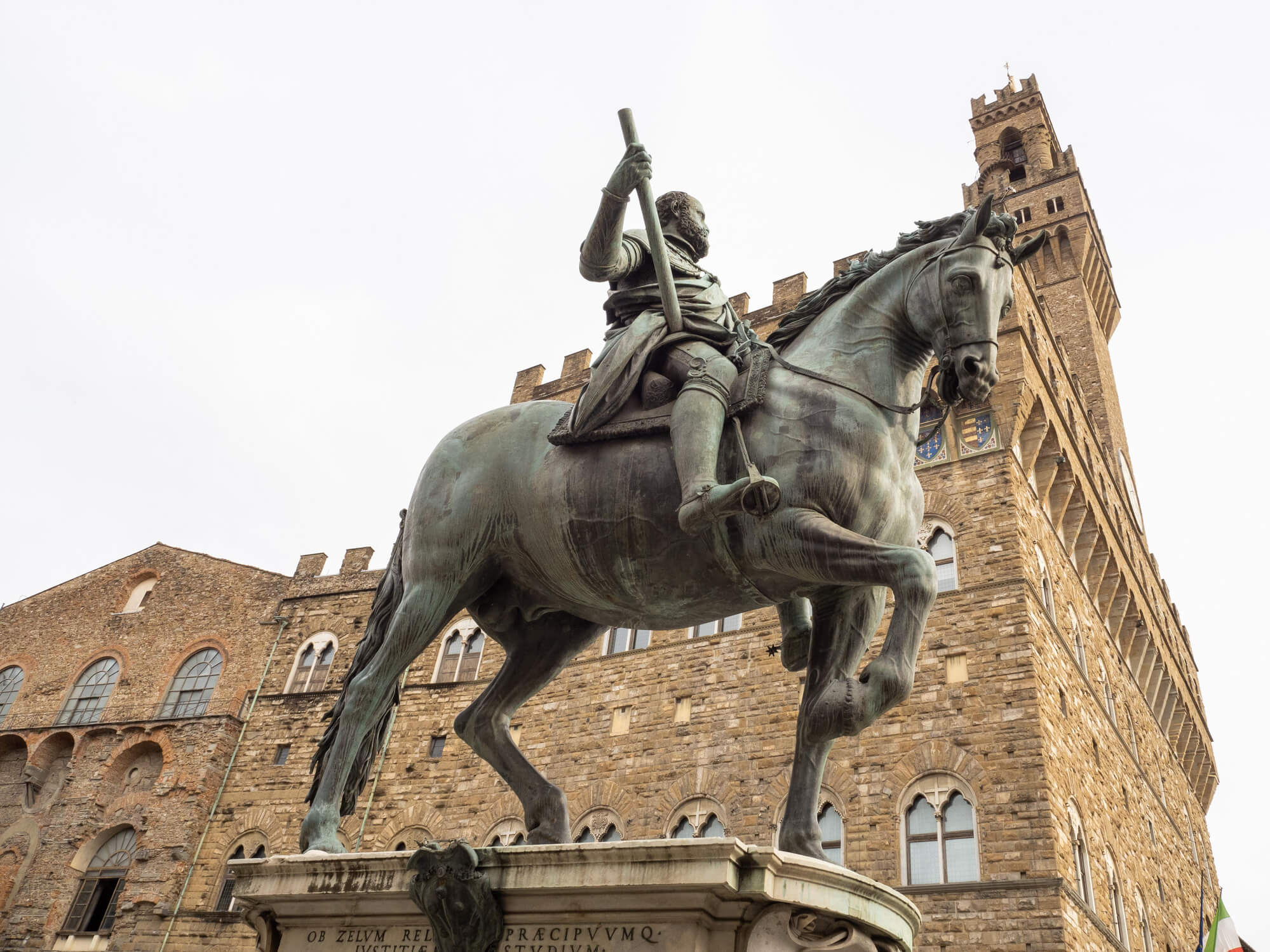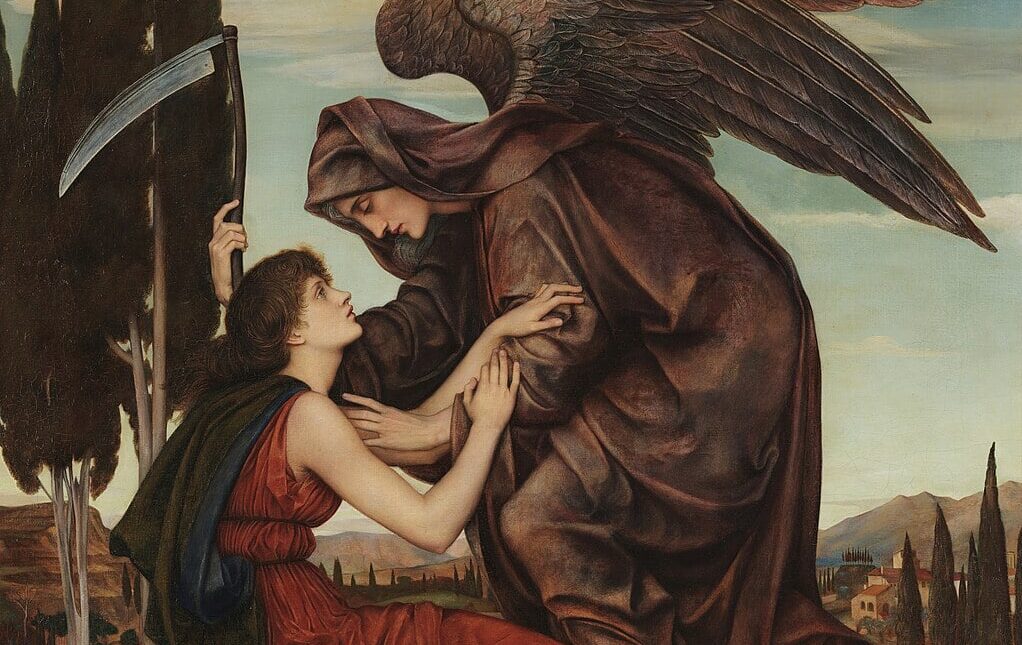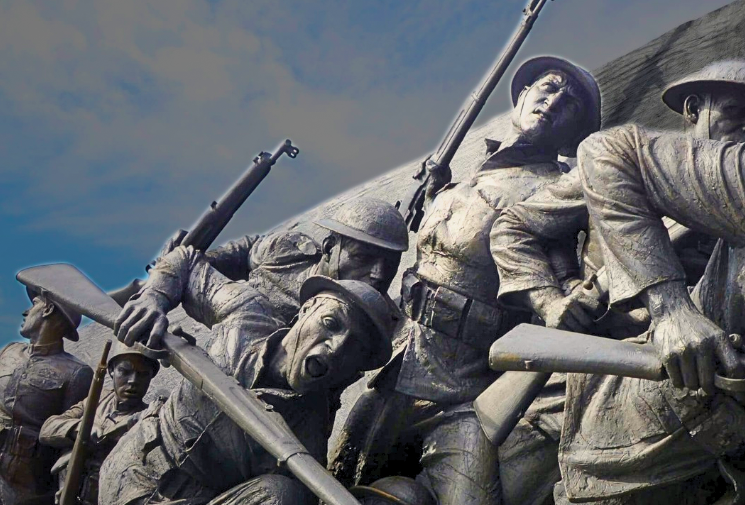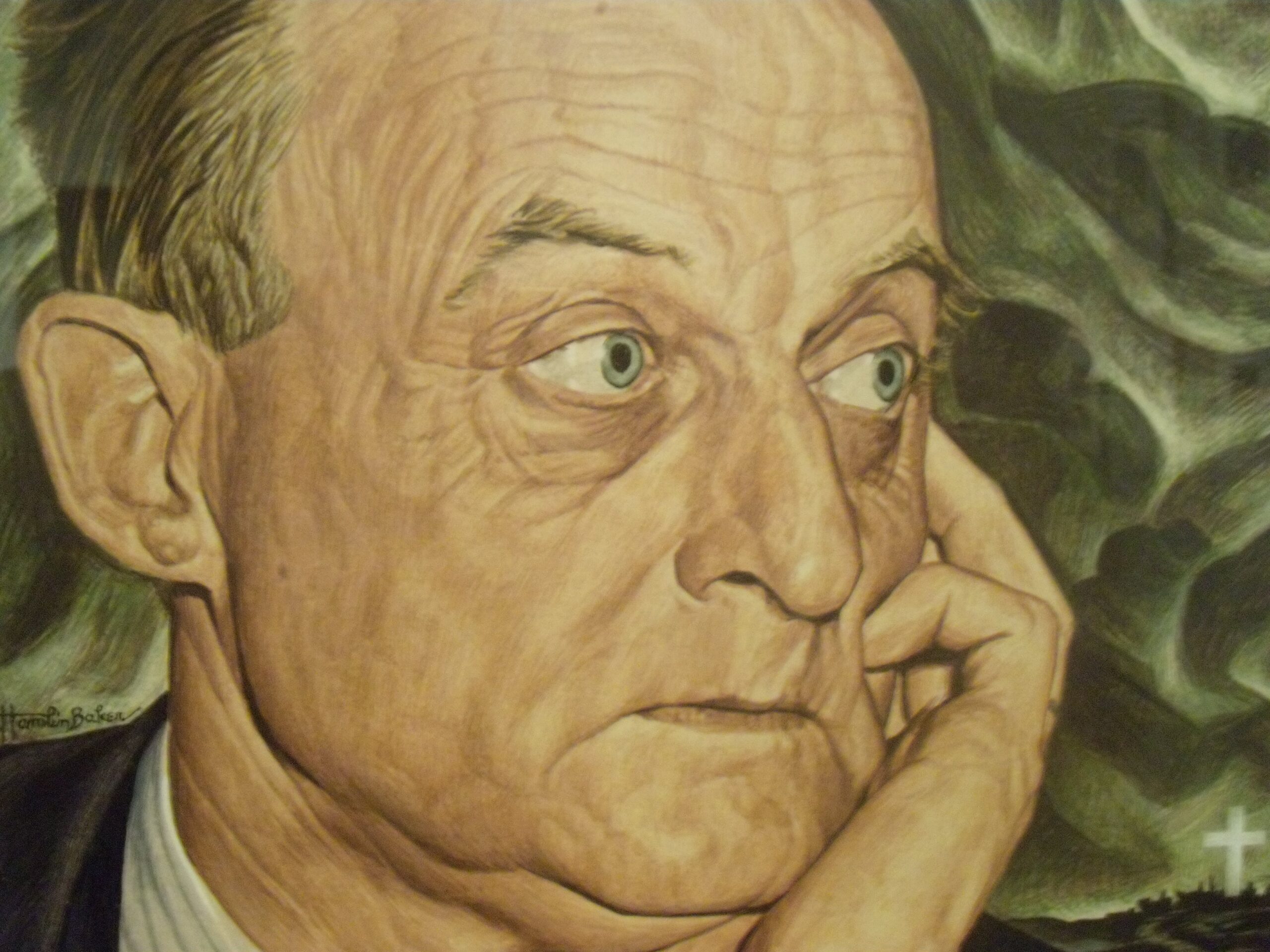Our contemporary political discourse is rightly dominated by concerns over a disconnected and often undemocratic elite lording it over the humble hoi polloi. Efforts to rectify this egregious imbalance have manifested in populist revolt, which has ultimately been contained. The Establishment has overseen the ejection and now prosecution of Trump in America, the deliberate delay and then attenuation of Brexit in the UK, and the wearing down of the gilets jaunes movement in France. Why all this should be so was predicted with great clarity one hundred years ago by the Italian school of elitism.
This school of thought in political science sought to demonstrate how a rapidly modernizing society would, despite its egalitarian principles, drift towards oligarchic and authoritarian rule: increasing democratization would not prevent power from being preserved in the hands of the few, as it had always been. A pivotal moment for this school came in 1923 when Gaetano Mosca published the second, hugely expanded edition of his 1895 tome Elements of Political Science. The revised version went on to become known as The Ruling Class, reaching a wider audience in its English translation of 1939. The year 1923 also saw the death of Vilfredo Pareto, a fellow adherent of the school, who popularized the term “elitist.”
The third great theorist of the school is Robert Michels, who further developed the theory of elitism. For some, he is the most important of the trio—an argument that will be supported here.
Why has the elitist school not been more widely brought to our attention in our current political climate, so relevant to the findings of these Italians? An obvious reason is that beyond academic specialists these thinkers and their works are not widely known. And for those who are aware of them, they come with a burden: a taint of fascism. All were very much intellectually active during the Mussolini years in Italy, with Michels joining the fascist party as early as 1924. But this association—tenuous in the case of Mosca, debated with Pareto—should not result in a knee-jerk rejection of their works.
In an important recent book, Neema Parvini takes a more focused view. The Populist Delusion is a powerful work, in which Parvini convincingly argues that populist revolts will amount to naught unless they are coordinated and organized in light of the elitist school’s discoveries. Even if successful, populism would mean that one elite group is replaced by another, the counter-elite. Parvini examines the three elitist Italians and adds five other chapters on thinkers influenced by them (including the somewhat notorious Nazi Party member Carl Schmitt), aiming in his analysis to separate the personal policy preferences of these figures from their essential ideas. His objective is simply to determine whether or not the conclusions of these thinkers are true.
Our current situation would tend to suggest that they are. As Parvini rightly declares: “These thinkers give us the indispensable tools and vocabulary with which to analyze politics and power.”
Gaetano Mosca (1858–1941), a scholar of constitutional law, later a senator and public official, vies with Pareto as being the head of the Italian school. He posited that all societies, even primitive ones, are ruled by a small group of elites, the “political class.” Historically, this is unsurprising, but Mosca emphasized that this would continue in the new age of democracy. The existence of “a class that rules and a class that is ruled” holds true with or without elections; the will of the people is a myth.
Mosca and the school around him were not offering prescriptive philosophies such as those propounded by liberals, Marxists, and fascists. Instead, he was simply providing an accurate observation of political society as it was. After an era of laissez-faire, liberalism, socialism, and democracy—and, in the early twentieth century, fascism—the Italian school was, in effect, returning to the principles of Machiavelli, who was determined to reflect “the effectual truth of the thing.” The ideal was being replaced by the real.
Such attitudes exposed the school to accusations of cynicism and immorality, much like those directed at Machiavelli. Understandably, idealists and political activists, many of whom were academics and public writers, did not appreciate their nebulous aspirations being blown away by the vigorous breeze of reality. In Mosca’s view, the will of the people counted for little against the will of the elites; this, to put it mildly, undermined popular political movements and their advocates. Criticism from them was inevitable.
Unlike his two fellow political philosophers, however, Mosca remained at a greater distance from fascism: his last speech in the Italian senate roundly denounced Mussolini, even though the dictator is said to have borrowed some of Mosca’s ideas.
The key to elitist success is organization. As Mosca writes in The Ruling Class: “A hundred men acting uniformly in concert, with a common understanding, will triumph over a thousand men who are not in accord and can therefore be dealt with one by one.”
Is this not the case today? Political parties, the media, senior civil servants and bureaucrats, alumni networks, the gilded groupings and gatherings of the super-rich: these smaller cliques, where people know each other personally, are more readily coordinated than disparate groups of strangers struggling to connect among the divergent masses. Such elite groups are in a position to adapt to democracy on their own terms, rendering representative democracy into elected oligarchy:
When we say that the voters “choose” their representative, we are using a language that is very inexact. The truth is that the representative has himself elected by the voters . . . we might qualify [this claim] by saying that his friends have him elected. In elections, as in all other manifestations of social life, those who have the will and, especially, the moral, intellectual and material means to force their will upon others take the lead over the others and command them.
Mosca makes the obvious but necessary point that these networks of friends are generally wealthy and control the media and spread of information; they will typically have chosen the candidate for the electoral process in the first place. Vested interests are thereby sustained.
Importantly, Mosca recognizes another stratum to the elite setup: what James Burnham calls the “managerial class” or Pareto calls the “non-governing elite.” These are the facilitators of elite rule. As Parvini observes, noting a parallel with the Marxist cultural theorist Antonio Gramsci:
It seems to me that Mosca has in mind, principally, civil servants, bureaucrats, and other people responsible for the day-to-day management of the state. . . . Gramsci seems to have in mind the intelligentsia, those people responsible for disseminating and controlling the flow of information and ideas, opinion shapers, mythmakers, ideologists, upholders and justifiers of the political formula, or, if you prefer, a priest class.
Indeed: it is all of these and more, including the ideological altar boys and girls found in primary-school teaching and, these days, very much in the churches themselves (especially in Europe, where Anglican and Protestant hierarchies are especially beholden to the most extreme manifestations of liberal ideology).
Mosca comes under attack from idealistic quarters because he does not allow hope for change. Parvini is much taken with this outlook, for it reflects a central contention of The Populist Delusion: Mosca “punctures absolutely what I would like to call the populist delusion that if conditions get bad enough, if the plebeians become too disgruntled with their leaders, then the people will rise up and overthrow them. This, as Mosca shows, has never happened in history, not even once.”
Changes can and have been effected—in England the Peasants’ Revolt of 1381 and the Pilgrimage of Grace uprising of 1536 come to mind—but they prove to be short-lived and their gains quickly erode. In the UK, the Brexit revolt has followed the pattern: many would argue that Brexit exists in legal theory but not fully in legal practice, the “representative” parliamentarians ensuring that the preferences of the elites supersede the votes of the electorate. Mosca’s account of the mythical will of the people has some resonance.
Vilfredo Pareto (1848–1923) moved from an engineering background to economics and political theory. The two million words of his Treatise on General Sociology from 1916 received an English translation in 1935 as The Mind and Society. Its four volumes were later condensed to a quarter of its original size in the Compendium of General Sociology in 1920, with an English translation not arriving until 1980.
Pareto’s work is wide-ranging and not short of equations and graphs, but he notes the limitations of economics in explaining human behavior. Like Mosca, but even more so, he is committed to studying society for what it is, not what it “should” be. One difference between the two was over whether he or Mosca should be regarded as the founder of the Italian school of elitism.
For Pareto, human rationality comes second to the sentiments; man is driven by instincts rather than by conscious beliefs. Pareto classifies the instincts as “residues,” while the rationalizing stories that people invent to explain their own and others’ behavior are “derivatives.” Pareto asserts that “history does not repeat itself”; instead “there are certain underlying forces (residues) that are constantly at work in a wave-like fashion.”
This precludes the supposed phenomenon of progress: “So years, centuries, go by; peoples, governments, manners and systems of living, pass away; and all along new theologies, new systems of metaphysics, keep replacing the old, and each new one is reputed more ‘true’ or much ‘better’ than its predecessors.”
Parvini explains that in Pareto’s view, “Historical change has no direction or purpose, it does not repeat, it has no shape, it simply convulses in response to these deeply felt ‘non-logical’ human needs.” But this is only partially true. The constants of human nature do indeed give history a loose shape; historical change is frequently a response to that ever-present human nature, which is as evident at the top of the political pyramid as at its bottom.
This gives rise to a paradox apparent in one of Pareto’s central and most convincing deductions, that humans have a perpetual need to believe in “certain theories that are experimentally false.” It is virtually a law of history that human beings will falsify the laws of history:
So great is the need of such things which human beings feel that if one structure happens to collapse, another is straightaway reared of the same material. . . . Since society cannot do without the thing A, some of the defenders of the old faith P will merely replace it with a new faith Q, no less discordant with experience.
This is a secularized version of G. K. Chesterton’s famous maxim: “When men choose not to believe in God, they do not thereafter believe in nothing, they then become capable of believing in anything.” Thus, today we do without God and replace Him with the deification of science, identity, and wokery, and we can hold fundamental beliefs at odds with the laws of nature without any numinous explanation whatsoever. The lies we tell ourselves fill our empty, profane souls with a new purpose.
As Alain de Benoist has perceptively observed, humans have “an inclination towards rationality, not the fact of being rational.” Pareto underlines this. And so it is that people allow themselves to be constantly hoodwinked by the political class, which shapes ideas and belief systems.
Ideas come from the political elites and their implementation from their servants in the managerial bureaucracies. The subject class can grumble, but there is little we can do to change things, says Pareto: “the subject class is almost always powerless to set up any lasting regime.” Is this not where we are now—and, according to Pareto, where we have always been?
All political systems fall under his theory, he claimed, including communism, fascism, feudalism, and even democracy, the last of these belying its notions of egalitarianism. Pareto’s theory has been much criticized. Certainly it has its flaws, not least in trying to be a tidy formula to explain the messy business of ruling. But its basic conception is surely right.
A more significant defect—one to which Parvini draws attention—is that Pareto underplays the importance of myth in shaping ideas. Myths are not merely “beautiful lies” but also “extremely powerful motivators of human action.” Parvini might have added that the elite cannot abide to be thought of as the bad guys: they pursue their self-interest under a cloak of virtue—a very bright and conspicuous cloak. It is not enough that they get their own way; they have to be praised for doing so. They adopt myths that suit them, and when necessary they create new ones. We see this in the explosion of manufactured wokery in recent years.
The Italian school of elitism comes to maturity, in this writer’s eyes, with the work of Robert Michels (1876–1936). A German-born Italian sociologist, he had a cosmopolitan education at universities in Britain, France, Italy, and Germany, which brought him into close contact with Mosca and Pareto. He was especially close to the former, being regarded as “Mosca’s disciple.” At one stage he was also a student of Max Weber.
For a time he was a socialist. But, frustrated by the organized socialist movement, Michels turned right, ending up as a supporter of Mussolini, who he felt represented a purer form of socialism than the traditional left.
His experiences within the German Social Democratic Party led him to write about how it preached democracy while rejecting it within its own ranks. Democracy and Marxism were simply good rallying cries that secured funds and power, enabling party and union officials to feather their own nests and tighten their control over their organizations. (Here I think it useful to equate institutions with organizations.)
Michels published his findings in his hugely influential book Political Parties in 1911, an English version of which appeared in 1915. In this he propounded his “iron law of oligarchy.” In short, all organizations, regardless of their democratic intent or mass-membership rolls, always end up as oligarchies, in which a small elite dominates every aspect of the organization. These organizations can range from churches and trade unions and large charities to political parties and democratic governments. In Michels’s words: “It is organization which gives birth to the domination of the elected over the electors, of the mandataries over the mandators, of the delegates over the delegators. Who says organization says oligarchy.”
All complex social systems in the modern age demand central, bureaucratic organizations; these inevitably are run by a few leaders at their apex who wield the power. Michels’s Social Democratic Party was the most pro-democratic force in Germany at the time. But he showed it to be anything but democratic internally. As Seymour Martin Lipset puts it in his introduction to the 1962 American edition of Political Parties: “If such parties are themselves undemocratic in their internal structure, presumably the effort to completely democratize society must fail.”
Michels was therefore highly skeptical about the integrity of representative democracy, for “large-scale organizations give their officers a near monopoly of power.” As with Mosca, Michels believed that as soon as “the election is finished, the power of the mass over the delegate comes to an end.” Thereafter it is the elite of the governing party and its own selfish concerns that determines the agenda, often against the wishes and interests of its electors. How many election platform pledges are ever enacted?
With power concentrated in a few hands, the leadership accrues privileged knowledge from which the rank and file are excluded, control over communications and media, powers of organizing activities and mobilization, and the honing of publicity skills and the projection of the public face of the organization. Those at the top are paid to devote their working lives to the promotion of the organization, while the membership have to earn their keep elsewhere, supporting themselves and their families, and recovering from their labors in their free time. They therefore have little opportunity or inclination to be involved in the running of the organization. And so power gravitates evermore to those at the top and those enjoying its sinecures. In this way, argues Michels, all organizations, no matter how altruistic in their foundations, end up existing primarily to serve themselves.
This conclusion is hard to refute. Today we see many organizations that came into being with humane and noble motivations now transmuting into extremism and ugliness. Take civil rights and gay-advocacy groups. With much of their work successfully achieved and legally reinforced, some now have to find new battles and create new wars to justify their existence and financial underpinnings. Does racial equality now have to be anarchically appropriated by Black Lives Matter? Do gay rights have to be projected onto trans rights? In intellectual terms these can be debated; but in monetary terms they are imperative for these organizations and the leaders behind them.
Even organizations such as NATO can succumb to the same pressures. There is much academic argument over whether NATO should have been disbanded with the fall of the Soviet empire, yet with that fall a new raison d’être was sought and found in NATO expansion into central and eastern Europe.
Herein lies the root of the successful leftist strategy devised by Gramsci and Rudi Dutschke to undertake long marches through the institutions. The exercise of power will be left to the few men and women in charge of these institutions; the masses can be bypassed. Parvini explains how the will of the focused, politicized leadership of the student government body will prevail on every campus, the students busying themselves with other pursuits, academic or otherwise, “and so, we might see how ‘society’ might wake up one day to find that it has sleepwalked into a quasi-Marxist progressive hegemony.”
But it is doubtful to say as Parvini does that the “hard ‘check’ on this is that the mass will not tolerate intrusive interventions into their everyday lives.” Alas, as recent events have shown, it will. Who would have believed that free societies would so readily, even eagerly, comply with mandatory vaccinations and the curtailment of free movement and association that came with COVID lockdown injunctions? These excessively intrusive measures were endorsed by a majority. This demonstrates the extent to which those in power, even in this supposedly democratic age, can enforce their considerable will on the people.
Why has this been the case? Gustave Le Bon’s famous psychological work The Crowd: A Study of the Popular Mind (1897) offers a convincing answer: “the ‘psychological need’ for leadership by the masses, their predisposition to hero-worship, and their tendency to excessive gratitude.” Emotions, mass psychosis, and the desire to be saved by others are endlessly exploited by state and organization leaders in responses that can range from the bluntness of convenient “emergency” legislation to the subtle promptings of nudge theory. As a current example, the COVID emergency is now often touted as providing the template for future “net zero” climate emergency measures: around the globe, publics are experiencing green taxes and scare-inducing prompts to alter their habits at the behest of the ruling elites and lobby groups.
Why do the elites feel the impulse to micromanage the rest of us? Michels brilliantly captures an eternal truth here:
The desire to dominate, for good or evil, is universal. These are elemental psychological facts. In the leader, the consciousness of his personal worth, and of the need which the mass feels for guidance, combine to induce in his mind a recognition of his own superiority (real or supposed). . . . He who has acquired power will almost always endeavor to consolidate it and extend it, to multiply the ramparts which defend his position.
Parvini likens this to the Nietzschean Will to Power, with intoxication and addiction: “It is significant that it is power that is the motivation and not merely money. . . . The prospect of control is a far greater motivator than greed.” One fears this is true: just look at Mark Zuckerburg and Bill Gates.
But here we must note the savior complex of these elites. Partly to assuage their guilt at their ill-gotten gains and to justify their immense wealth, they divert attention away from their lucre by flagging themselves up as guardians of the planet, the oppressed, and all things cozily progressive and “good.” Where these problems do not exist, the elites invent them in order that they might champion their cause. Self-justification thereby becomes sanctified.
The elites’ amour propre becomes central to their identity and permits them to indulge in their wealth and power with a purified conscience, while justifying their chosen separation from the unwashed masses. It was ever thus. In late republican Rome, Cato the Younger and his party considered themselves as “the good people” (boni) and “the best people” (optimates). They were the right people to command the unruly and ignorant lower orders.
The more organizations and institutions, the better for the elites. They move seamlessly between one and the next: from political office to corporation to nonprofit to merchant bank, each time landing near the top of their new institution. In Germany, the former chancellor of the country, Gerhard Schröder, moved on to the board of Russia’s energy giant Rosneft. In Britain, failed Liberal Democrats leader Nick Clegg moved on to an executive role at Facebook, where he now earns millions every year (and where his illiberal tendencies have become clear, again confirming Michels’s law). In their ranks there is seemingly no end to failing upwards. Being in the elite always ensures a good gig.
Parvini is not optimistic that anything substantial will change. The circulation of the elites will continue as ever, the best we can hope for being “a vaguely sensible replacement for a few years whose interests will be closer to those of ‘the people’.” He is likely to be proven correct.
The Italian school of elitism should not be forgotten with its absorption into the more recent (and hence better-known) works of Carl Schmitt, Bertrand de Jouvenel, James Burnham, Samuel T. Francis, and Paul Gottfried, all of whom are brilliantly assessed in Parvini’s book. The debt they owe to Mosca, Pareto, and Michels is immense. In a new age of democracy, the Italian school of elitism was swift in recognizing politics as usual. About half a century ago, in 1971, Pete Townshend and The Who summed it up rather nicely in their epic song “Won’t Get Fooled Again”:
Meet the new boss
Same as the old boss.














